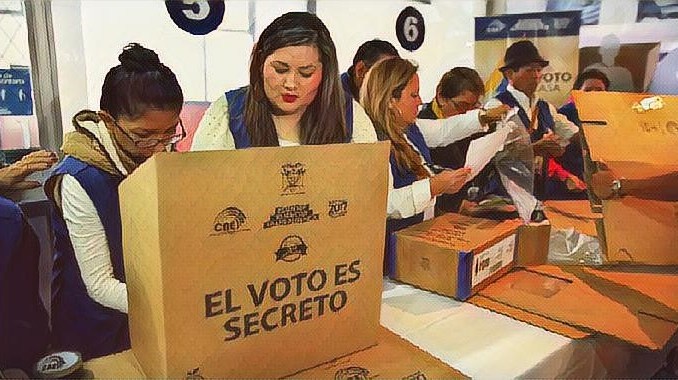
The CNE analyzes the implementation of biosecurity measures for the 2021 elections, as well as the use of telematic means.
The schedule for the voting on February 7, 2021 to elect Assembly members, Andean parliamentarians and President of the Republic was altered due to the coronavirus pandemic.
Last Tuesday the displacement of the brigades had to start for the change of address campaign, but in the face of the health emergency, the National Electoral Council (CNE) decided to suspend this task because the delegations of this body remain closed.
The counselors postponed the treatment of alternatives for another meeting. However, one of them is that it be done through the agency’s website from May 16 for 30 days.
The vice president of the CNE, Enrique Pita, proposed that the collaboration of the Ecuadorian Security Institute (IESS) be requested to use the platform of this institution.
While councilors José Cabrera and Estela Acero, considered that this right cannot be limited only to those affiliated to social security.
In addition, the directors identified a regulation of the CNE that prevents changes of address to people who have fines.
For Fausto Camacho, of the Electoral Observatory, the change of address is not a problem, unless a citizen has moved from province.
What worries him is that the councilors still do not agree on other issues such as the electoral roll, voting methods or the procedures that will be applied to choose the candidates.
The last reform of the Democracy Code gave the CNE 120 days for “an independent audit of the electoral registry” and its purification. The term runs from last February 3 when the rule was published in the Official Registry. The agency has just 26 days left and has not yet approved a resolution.
Another deadline that is about to expire is the presentation of documentation for verification and registration of political organizations that ends on May 19.
Camacho specified that the CNE cannot alter the schedule established by law for the electoral process, for example, that the call for elections is made 120 days before the scheduled date and that the list of voters must be defined 90 days in advance.
The president of the CNE, Diana Atamaint, acknowledged that the coronavirus disrupts not only the schedule, but the budget because biosecurity measures must be considered, so the amount has not yet been defined.
Atamaint clarified that the CNE does not have the power to exclude the delivery of public funds for electoral promotion, because that is a constitutional provision, but that in the face of the health emergency that must be a decision of political organizations.
The head of the electoral body indicated that recommendations will be requested from the national Emergency Operations Committee (COE).
The CNE plans that trainings and drills will be implemented on November 1, so that everything is ready by February 7. Although there is the possibility that the voting can be carried out in three days or through telematic mechanisms.
Source: CNE, El Comercio, social networks

Be the first to comment